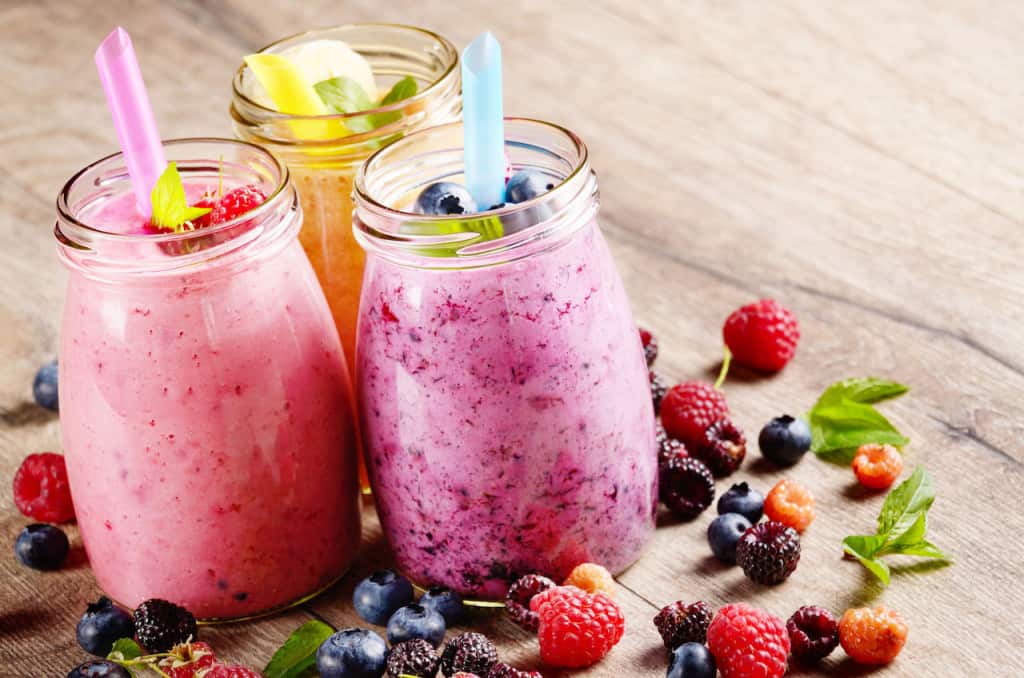Contents:
- Medical Video: 25 Foods You Should Never Store in the Fridge
- 1. Potatoes and sweet potatoes
- 2. Onions
- 3. Garlic and shallots
- 4. Tomatoes
- 5. Fruit
- 6. Coffee beans
- 7. Bread
- 8. Oil
- 9. Leaves
- 10. Legumes
Medical Video: 25 Foods You Should Never Store in the Fridge
After shopping monthly, maybe you are accustomed to immediately storing various food ingredients into the refrigerator. Ranging from fruits, vegetables, to meat. Storing a variety of foods in the refrigerator can indeed help extend the life of these foods. Especially if you really do not plan to spend it in a few days. In fact, certain types of food will actually be damaged quickly if put in the refrigerator. Well, do you often store the following foods in the refrigerator?
1. Potatoes and sweet potatoes
Potatoes and sweet potatoes cannot enter the refrigerator because cold and damp air can damage the texture and taste. The starch contained in potatoes and sweet potatoes will break down faster into sugar so the potatoes and sweet potatoes become stung sweet. The soft texture will change to be more rough and hard. It's best to store your potatoes and sweet potatoes in a dry place and not be exposed to direct sunlight, for example in a food cupboard. Avoid storing potatoes and sweet potatoes in an airtight plastic bag because they can rot quickly.
2. Onions
Don't store the onions in the refrigerator. Because the moisture in your refrigerator will turn onions into soft, dull, and moldy fast. Simply store the onions in a dry place, not exposed to direct sunlight, and the temperature is quite cool. Your onions will also remain crunchy and distinctively flavorful.
READ ALSO: 5 Tricks To Not Cry When Cutting Onions
3. Garlic and shallots
If stored in the refrigerator, garlic and shallots will grow buds for a long time. The texture of the onion will become more supple and dull. In addition, the taste of garlic and shallots will not be as sharp as before, so your cooking will be even tastier. So, keep your onions in a dry place with good air circulation. Also avoid garlic and shallots from direct sunlight.
READ ALSO: 7 Surprising Benefits of Eating Raw Garlic
4. Tomatoes
This is the most common mistake. Tomatoes should not enter the refrigerator. Maybe you want to keep the tomatoes fresh, but storing tomatoes in the refrigerator will actually make it dull and flabby. Cold air will also change the taste of tomatoes to be more bland. The best tomato storage is in a place where the air circulation is smooth, for example on the kitchen table.
5. Fruit
Actually the best way to enjoy fruits is to be eaten directly, not stored for too long. Especially if stored in a refrigerator. Fruits such as bananas, avocados, watermelons, melons, apples, pears, strawberries, mangoes, oranges, and papaya will lose their properties if stored in the refrigerator. Because the antioxidant content in these fruits can be reduced due to cold air. In addition, fruits stored in the refrigerator will also feel dry and undercooked.
6. Coffee beans
If you buy sufficient quantities of coffee beans and can't directly consume them, don't put them in the refrigerator. Moisture in the refrigerator will change the coffee you make to be more runny and the aroma will not be strong. Coffee beans stored in the refrigerator will also absorb the aroma of other food ingredients that are stored together. Your coffee taste gets messed up after being pounded and brewed. To store coffee, put it in an airtight container and store it in a place that is not subject to direct sunlight.
READ ALSO: 4 Healthy Alternatives to Coffee Replacement in the Morning
7. Bread
Although the bread is actually not allowed to enter the refrigerator, there are still many people who make this mistake because they want to keep the bread durable after days. Storing bread in the refrigerator can indeed prevent mold, but your bread feels drier and rough. We recommend storing bread in an airtight container for a maximum of three days. If you really can't spend it in that time, put it in a closed container before storing it inside freezer.
8. Oil
Various types of oils such as olive oil, virgin coconut oil (virgin coconut oil), or palm oil cannot enter the refrigerator. The oil stored in the refrigerator will thicken and freeze into margarine. After all, oil can last a long time without being put in the refrigerator. You can store it in a dark place at room temperature.
9. Leaves
Leaves that are often used as spices or spices also may not enter the refrigerator. Examples are leeks, cilantro, basil leaves, celery leaves, bay leaves, or parsley leaves. If stored in the refrigerator, the leaves will absorb odors from other foods in your refrigerator so they don't smell anymore. If you want to keep it for a long time, you should soak the leaves of herbs in the water.
READ ALSO: Relapse Vertigo? Immediately Overcome With 5 Kitchen Spices
10. Legumes
We recommend that raw beans such as peanuts, almonds, cashews and green beans do not enter the refrigerator. Because the beans stored in the refrigerator can reduce the savory taste typical of beans. In addition, peanut skin can also absorb odors from your refrigerator. Just enter the beans in an airtight container and store them in a dry place and away from direct sunlight. However, if you really want to keep it for about a year, store it in a closed container inside freezer.












